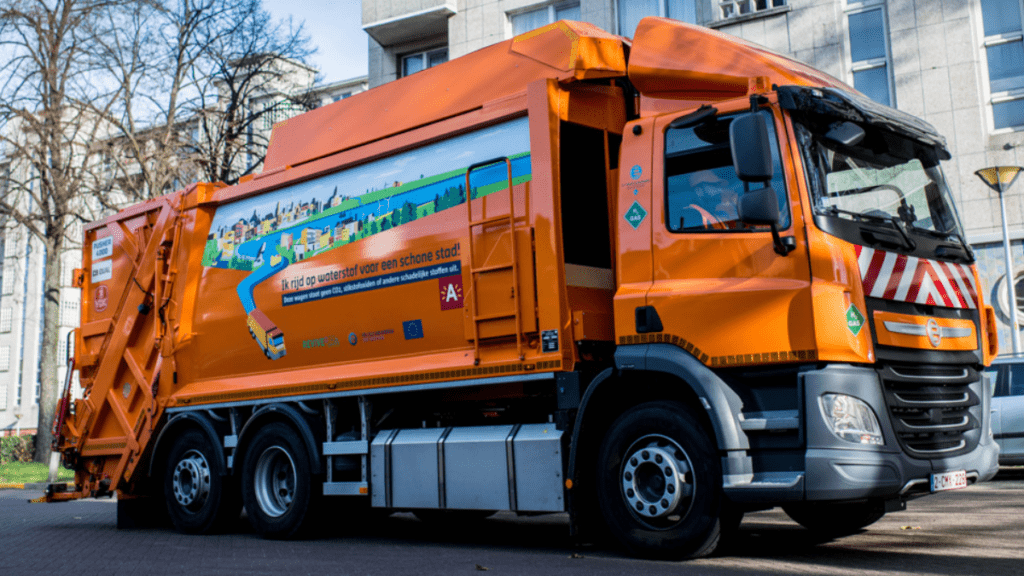
The City of Antwerp welcomes two new hydrogen-powered garbage trucks. Equipped with an electric motor with batteries and a fuel cell, these new vehicles collect household waste in the city without emitting C02. This initiative is a first for Flanders and comes with the support of the European REVIVE project and the Clean Hydrogen Partnership. The first vehicle was extensively tested last month, the second vehicle is now also being used.
Fuel cell and hydrogen
Within the urban fleet of the city of Antwerp, refuse collection vehicles have the greatest effect on emissions. The transition to fully electric vehicles is difficult here due to the required capacity and the high weight of the battery itself. A possible solution is an electric powertrain, supplemented with a fuel cell and hydrogen tanks, to enable a longer range. Vehicles running on hydrogen do not emit C02, particulate matter, or nitrogen oxides, only water vapour. Hydrogen not only increases the range, but it allows for quick refuelling. This avoids the long charging time of electric batteries.
The City of Antwerp is now officially commissioning two hydrogen-powered garbage trucks into use. The first vehicle was extensively tested last month. The second vehicle is now also being used. These vehicles will fill up with hydrogen at DATS24 on Boomsesteenweg in Wilrijk, or at the CMB.TECH hydrogen filling station at the Port House. The conversion of the two regular diesel garbage trucks into fuel cell trucks was done by E-Trucks Europe in Lommel.
Alderman for city and neighborhood maintenance Els van Doesburg:
“Antwerp is always at the forefront of innovation. Once again, because we are the first city in Flanders to employ hydrogen-powered garbage trucks. These clean garbage trucks are a win-win-win; they emit no CO2, no fine dust and they hardly make any noise.In this way we ensure clean household waste collection in the city.”
REVIVE project
As part of the European REVIVE project, at least 14 refuse trucks, powered by fuel cells in combination with hydrogen, are being tested in various European cities. By participating, the city of Antwerp aims to support the further technological development of fuel cells and gain crucial insights into research on future generations of heavy vehicles. In this way, the city wants to continue to focus on the sustainability of its urban fleet.





